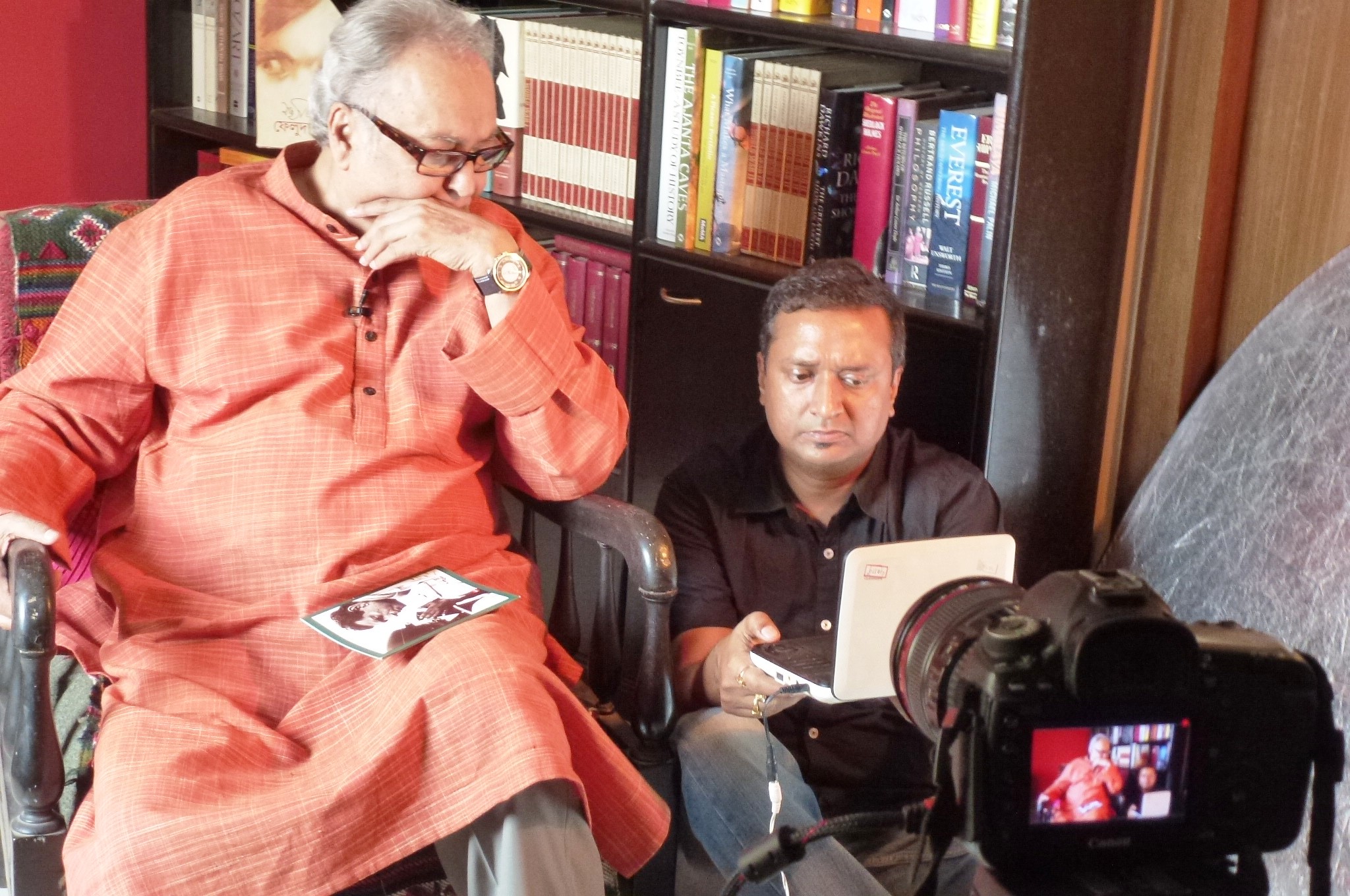Feluda: 50 years of Ray’s Detective is a path-breaking documentary. It sheds light on the relatively lesser known talent of Satyajit Ray as a master litterateur who designed his book covers himself and also drew the sketches that went inside. These are as beautiful as the books themselves and the titles are often alliterative. The Feluda Collection still remains among the top selling books for growing and adolescent children.
Ray’s central character, Feluda, has a miraculous memory and is a keen observer of human behaviour down to the finest nuances that empowers him with the power of detection. He is also arrogant but is sociable. What marks him out is his adventurous spirit that takes him and his readers from Kathmandu to Kailash, from Bombay (then) to Jailsalmer in Rajasthan with his nephew-cum-assistant Topshe and a successful writer of pop detective novels with the pen name Jatayu. These are also travelogues with a twist of crime. Feluda is radically experimental in his eating habits. One could perhaps say that Feluda or Prodosh Mitter is a post-modern detective.
Sagnik Chatterjee struck upon making a film on the 50-year journey of Feluda. He has produced and directed this film which also marks his directorial debut. The film is both a tribute to the fictional character Feluda and his ‘family’, and its creator, Satyajit Ray. Feluda turned 50 in 2017 and Chatterjee had begun the film several years back. However, it got stalled when the producer backed out. Chatterjee then turned to crowdfunding (Wishberry) to realise his dream. The film finally premiered at the New York Indian Film Festival in 2017, and is being released theatrically today.
The film journeys through the growth and amazing popularity of Feluda where Soumitra Chatterjee, the first Feluda in the three films Ray made, says that he became a cult figure overnight after the first of these three Sonal Kella, (The Golden Fort, 1974), was released. “Everyone I met on my morning walks began to address me as ‘Feluda’ which was a surprise because I was already an established actor when Sonar Kella was released.” Ray’s recorded voice butts in from time to time and this greatly enriches the unfolding of the ‘story’. The camera often closes in on a collage of the colourful covers of the Feluda books, meticulously and beautifully designed by Ray. Atanu Ghosh, a noted director, points out how logical Ray was in placing his stories in a definite time frame. Parapsychology, the science of remembering one’s previous birth, was finally proved to be a ‘science’ in 1969 and Ray set Sonar Kella, dealing with parapsychology, in 1970. The same applies to all the other Feluda novels as well.
The film includes many talking heads who have worked with Ray mainly linked through his Feluda films. Then, there are fans of Ray’s Feluda series who offer meaningful inputs about how they perceive the stories, Feluda, Jatayu, the mysteries, the travelling from one place to another and the slightly comical villains in each story. The film also talks to Sunit Sengupta, who has written an entire book on Jatayu, the pen name of Lalmohan Ganguly under the title Jatayu Jindabad (2009). Though Feluda keeps poking fun of Jatayu for his ignorance, over time, he becomes an ardent fan of Feluda and goes along with him wherever he travels. There is another character, a very senior person like Sidhu Jetha, who is an uncle of Feluda and has every fact on his fingertips despite his age. The film also details this character to complete the Feluda story.
The first half of the film mainly covers the literary references to Feluda while the second half dwells on the films that Ray and later his son, Sandip Ray, made on Feluda adventures. Sandip Ray offers delightful anecdotes about how his father got more fan letters for his Feluda series than for his films and his readership, also translated in several Indian languages, rose every day. So long as the film remains focussed on Satyajit Ray – both in writing and in films – the film sustains great audience interest. But once the film moves on to Ray’s son Sandip and his films on some of the Feluda adventures, the excitement begins to fade specially with talking heads who are not directly involved with either Feluda or Ray. The other screen Feludas such as Sabyasachi Chakraborty, Abir Chatterjee also talk about Feluda but they are distanced by one generation so their opinions do not come through as strongly. Also, the film dwells a bit too long when it takes the now grown-up Kushal Chakraborty, the protagonist of the first Feluda film Sonar Kella, who was a small boy when the film was made, walking through the streets of Jaisalmer and reminiscing on his experiences as a child.
On the technical side, the editing (Sujay Datta Ray) is quite smooth considering the enormity of the material (though the length does tell on the film) while the cinematography (Pinaki Sarkar, Subodh Karve) evocatively wanders around and on the characters in the film. The music is principally drawn from Ray’s own music compositions. The running commentary by Mir is reasonably paced and well-articulated which does not intrude into the content but enhances it. But above all, Chatterjee’s research is substantial and that gives a special edge to the entire film.
All in all, Feluda: 50 Years of Ray’s Detective, while truly a labor of love, falls short of being a truly path-breaking film. A bit more tightening and trimming at least half an hour of the film’s running time would have helped greatly.
Documentary, Color


